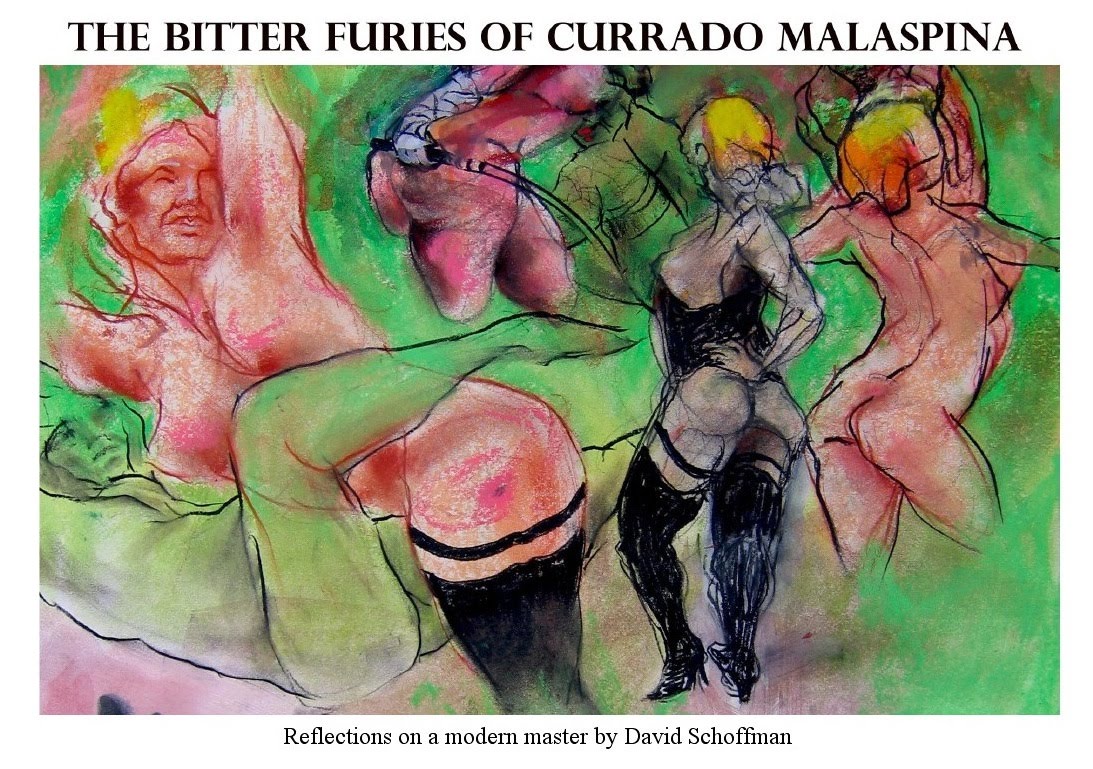Most people familiar with Currado Malaspina's epistolary excesses suspect that to some degree this wonderfully gifted artist is slightly unhinged. His notes and scribbles are the subject of deep analysis from both experts in the arts and specialists in psychology. He has been likened both to Rilke and to Arthur Schnitzler. He has been compared to Balthus and to Franz Schreker. Even the names Adolf Wölfli and Jean-Baptiste de Boyer have come up from time to time.
To me he's a cross between Paul Éluard and Elmer Gantry.


